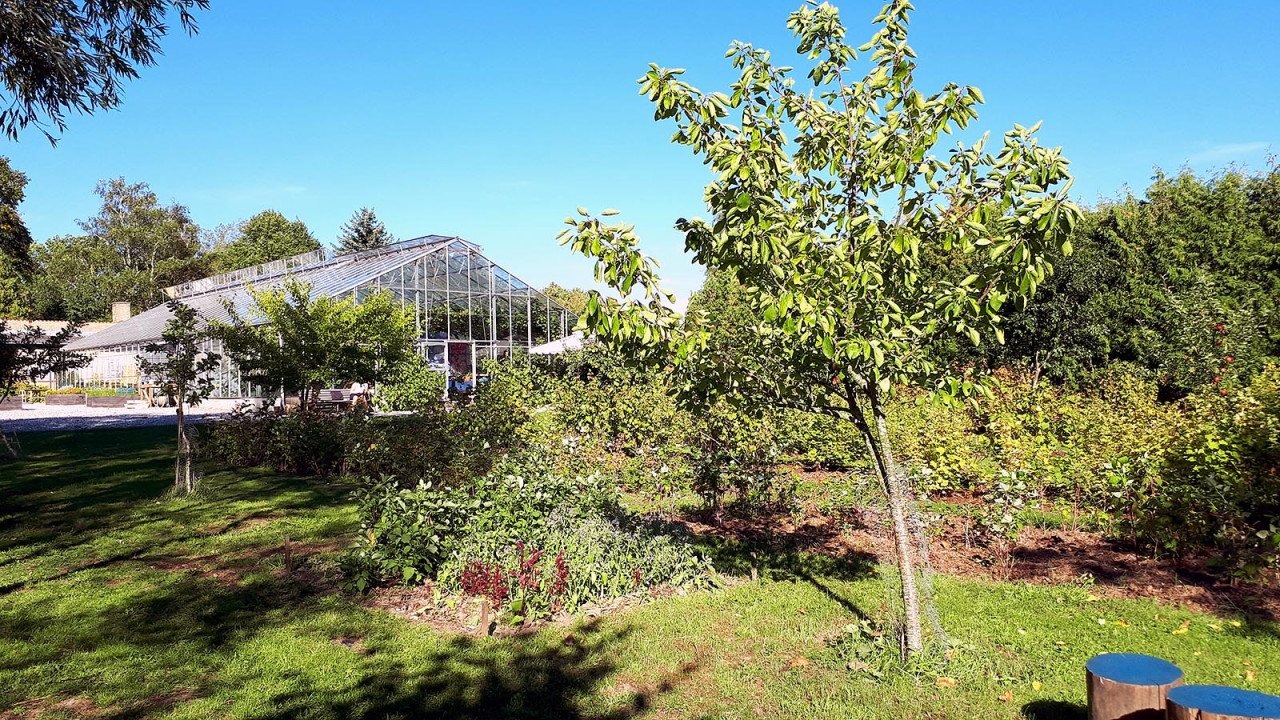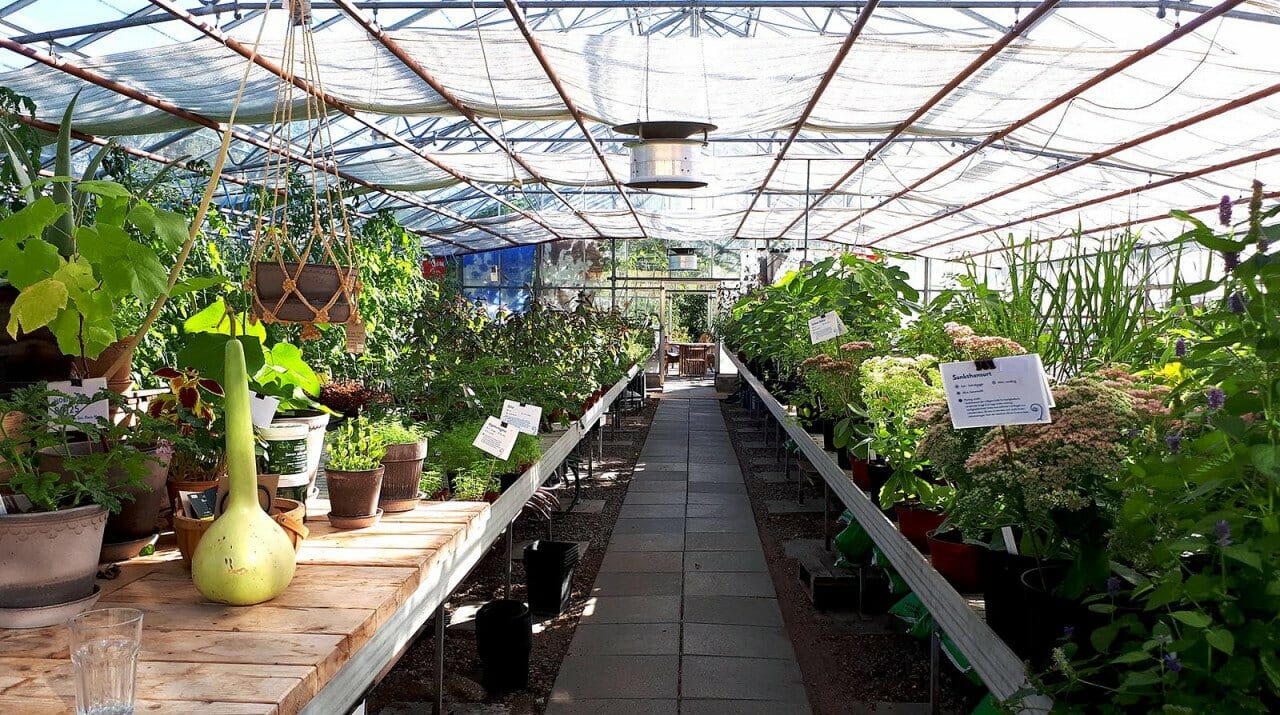Universitetsavisen
Nørregade 10
1165 København K
Tlf: 35 32 28 98 (mon-thurs)
E-mail: uni-avis@adm.ku.dk
—
Education
Education — Winnie Lund has graduated from a new master's programme at the University of Copenhagen which uses nature to help groups of patients with dementia, stress, PTSD, concussions – or adolescents who are mentally vulnerable.
Listen to the birds, fiddle with some chestnuts, rake some topsoil, get in tune with your body – and get well again faster.
Nature experiences can help treat illnesses if the conventional cocktail of pills and rehabilitative therapy is not enough. And patients in the established health system can be helped when they are in the process of long-term treatment without signs of improvement.
This is the basis of a two and a half-year master’s programme at the University of Copenhagen with the title ‘Landscape and Planning’ with courses in nature-based therapy and the promotion of health.
The programme’s objective
The master’s programme in landscape and planning – nature-based therapy and health promotion has participants from both the ‘green’ and ‘white’ sections of the labour market.
The ‘greens’ include biologists, nature guides, gardeners, etc. The ‘whites’ have a social or health professional background.
The purpose is an interaction between different disciplines.
Winnie Lund was one of the first students on the programme when it started in March 2016, and she has completed it with a case study in nature-based therapy.
She had previously graduated with a nursing and public health degree, and she is currently working in the regional governing body the Capital Region of Denmark.
Winnie Lund’s master’s thesis has given her the opportunity to work with psychologically vulnerable adolescents, and their health is something that has been her interest for a long time, she says:
»I am concerned with how our healthcare system, seen in a very broad perspective, can help psychologically vulnerable young people to more well-being and quality of life.«
St. Hans Garden in Roskilde, which is part of the psychiatric centre St. Hans, is run as a socio-economic corporation (run on market terms for societal benefits, ed.), for psychologically vulnerable adolescents who thereby get the opportunity to come into contact with nature – and start to feel better.
Winnie Lund says that the young people typically already have had experience with a system that focuses on the causes of illness and their treatment, and that she hopes to give them something more through nature.
And it is very pretty in St. Hans Garden in Roskilde. Everything is close to Roskilde Fjord which bordered by forests and bucolic landscapes. The old hospital buildings to the back are architecturally and aesthetically pleasing, sheep graze in the area, and Roskilde’s inhabitants jog and go for walks here.
In nature, young people can find respite from their thoughts. It means that their minds do not have to process as many impressions as inside the city.
»I would like to look at what it is that promotes their health, well-being, personal development and motivation. It is here that nature comes in. Young people learn to build up a relationship to the natural world through, say, gardening, and we know they are put into better touch with themselves. In this way they can be more capable of dealing with their anxiety and entering into social relationships,« says Winnie Lund.
Dorthe Varning Poulsen is Head of Studies, and she has for a number of years been part of the research group that has given input to the programme in landscape and planning.

Head of Studies Dorthe Varning Poulsen
»One of the main tracks in the programme is to determine what are the best elements of nature that support human health. This often applies to physical disorders: What is it that best appeals to, say, elderly people becoming more active? But it can also apply to mental disorders: What kind of nature do you need if you are mentally vulnerable and what type of nature helps stimulate social interaction?« says Dorthe Varning Poulsen before she continues about the second track:
»This is what we call the treatment track, where we go in and look at how to work with nature, so we can exploit the elements in it which research has shown helps strengthen patients’ self-esteem,« she says.
Nature-based therapy is particularly suited to helping specific groups of patients.
»In addition to those patients with a movement disability, like for example elderly people, and psychologically vulnerable young people, the patients can be those affected by severe stress, overeating, concussions and dementia. It can also be veteran soldiers afflicted with PTSD or patients in rehabilitation after cancer,« says Dorthe Varning Poulsen.
»When it comes to concussions, we can see that with conventional treatments, where the patients are in bed to rest and are not allowed to look at a screen, they often have an extended process where they do not actually get any better. Here, nature-based therapy can contribute with something extra to treatment,« she says.
In connection with her master’s degree, Winnie Lund has seen that the young people in St. Hans Garden experience improved health both physically and socially, and that nature has a positive impact on their mental regeneration and the need for withdrawal that many of them have. She has used this in her thesis.
»In my thesis, I argue why the new academic expertise in my study programme is important for the treatment and rehabilitation of young people with psychological vulnerabilities. Our insights can also help change some of the existing systems’ methods of treating, rehabilitating and supporting young people to get on with their lives,« says Winnie Lund.
Dorthe Varning Poulsen and Winnie Lund agree that a nature-based therapy should take place in a specific context and at a particular place.
Holistic education programme
The master’s programme in landscape and planning, nature-based therapy and health promotion, is a programme of continuing education that takes students up to the master’s level. The teaching is based on topical issues and links up with the latest theories. The teaching takes place in close collaboration with practice, and emphasises that participants can develop interdisciplinary collaborations and create networks.
Nature-based therapy and health promotion qualifies the student to work on nature-based therapy and other activities in nature with a health, educational, or social purpose.
The programme is part of the Department of Geosciences and Natural Resource Management, and focuses on people’s administrative practices as decisive for the changes in the landscape. The programme qualifies you to work with the holistic planning of landscapes.
Source: Department of Geosciences and Natural Resource Management
»Some might say, ‘well, all this listening to bird song – can’t people just go outside and do it by themselves?’ No, they cannot. Because when people are really sick, they can neither make a decision nor enter into conversation therapy. Then they need someone else to dose things for them,« says Dorthe Varning Poulsen.
The garden and what they do here, is in reality about finding a path into your self.
Winnie Lund
This is something that Winnie Lund has also seen during her education programme.
»Many of the young people I’ve met often live far away from nature. Or they sit in front of a computer all day. When they instead get out and get assignments to do in nature, it has a positive and health-promoting effect on them. In nature, young people can find respite from their thoughts. The mind does not have to sort as many impressions as when the young people are inside the city. The garden and what they do here, is in reality about finding a path into your self,« she says.
The experiences from St. Hans Garden also reflect what Winnie Lund has come to know through her education programme.
»It is all about, say, adapting nature, so that young people have places where they feel safe, and where they can come out to the rest of us when they want to. Many of them need to be able to retreat a bit to an area that seems manageable. A stack of firewood that closes the space off a bit, may be a really good idea for their sake,« she says.

